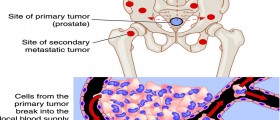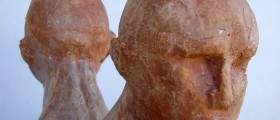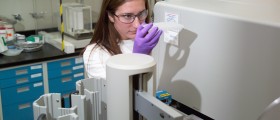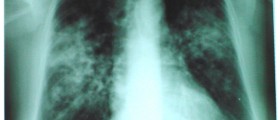The prostate gland is the tubuloalveolar exocrine gland of the male reproductive system. This gland is just a bit bigger than a walnut, weighing approximately 11 grams.
The gland consists of 30% muscular tissue and 70% glandular tissue. The prostate gland is situated below the bladder and behind the pubic bone. It is just in front of the rectum, warped around the urethra.

Function of the Prostate
Prostate gland has a number of functions in a male organism. Besides helping to control the flow of urine, one of the main functions of the prostate is to store and secrete a slightly alkaline milky fluid that usually constitutes 25-30% of the volume of the semen. If the prostate works properly, the secretion will be alkaline, which is very important to help neutralize the acidity of the vaginal tract and increase the lifespan of sperm.
Prostatic secretions contain less than 1% of protein, proteolytic enzymes, prostatic acid phosphatase, zinc, and prostate-specific antigen. The prostate is linked to seminal vesicles, which produce a protein that mixes with prostatic fluid forming semen. This happens during sexual activity when the tubes from the testicles carry the sperm to the prostate to get fused with the seminal vesicle and prostatic secretions, only to be ejaculated during the orgasm.
- The prostate gland is surrounded by a capsule of connective tissue containing many smooth muscle fibers and elastic connective tissue, which is why it feels very elastic to the touch when it is examined. There are also many smooth muscle cells inside the prostate. During ejaculation, these muscle cells contract and forcefully press the fluid that has been stored in the prostate out into the urethra. This causes the fluid and the sperm cells, together with fluid from other glands, to combine to form semen, which is then released.
- One part of the semen is produced in the prostate. Together with sperm cells from the testicles, fluid from the seminal vesicle, and the secretions released by another pea-sized gland below the prostate (the bulbourethral gland), the prostate fluid makes up the semen. All of these fluids are mixed together in the urethra.
- The prostatic secretion is important for the proper functioning of the sperm cells, and therefore also for fertility in men. The thin, milky liquid contains many enzymes such as the prostate-specific antigen (PSA). This enzyme makes the semen thinner.
- In the prostate the male sex hormone testosterone is transformed to a biologically active form, DHT (dihydrotestosterone).
- The hormone-like substance spermine mostly ensures sperm cell motility (ability to move).
The prostate is completely dependent on male hormones, especially testosterone, which is produced mainly by the testicles.
Prostate Disorders
Prostate is a gland that continues to grow throughout life. For this reason, most men will experience some kind of prostate-related health problem during their lifetime. Enlargement of the prostate is among the most frequent male health complaints.
The enlargement of the prostate is not a serious health problem, but it is highly uncomfortable and associated with possible complications. This condition is also known as benign prostatic hyperplasia, and it is sometimes characterized by constant pain to the point where urination becomes difficult.
Other problems of this condition include a frequent needing to urinate and taking a while to get started with urination.
Prostatitis is another health condition, characterized by the inflammation of the prostate gland. In most cases, the inflammation is non-bacterial and causes pain in the groin, painful urination, difficulty urinating, and related symptoms. Bacterial prostatitis counts for no more than 5% to 10% of all cases, and it is treated effectively with antibiotics.
Prostate cancer is the most serious prostate disorder and one of the most common cancers affecting older men. Early detection is very important in combating prostate cancer. Regular rectal exams, as well as the measurement of Prostate Specific Antigen, are recommended for all men older than 40.

















Your thoughts on this
Loading...